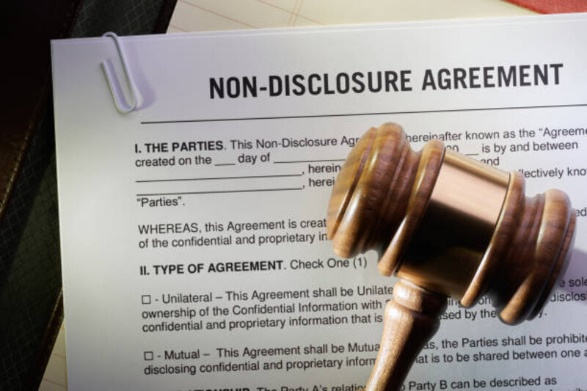Adverse possession, a nuanced concept in property law, holds substantial implications for landowners and prospective buyers. It refers to a situation where a person gains legal ownership of a piece of land by occupying it without the owner's permission for a significant period. This doctrine, while seemingly straightforward, is layered with complexity, governed by specific requirements that vary across jurisdictions. Understanding adverse possession is essential not only for those entrenched in legal professions, but also for individuals who own or plan to acquire property, as it can drastically impact ownership rights. This article aims to demystify the intricacies of adverse possession, offering a comprehensive overview of its legal definition and the implications it holds in property law.
Legal Definition of Adverse Possession

Adverse possession is a legal concept that allows an individual to gain ownership of land by occupying it for a certain period, provided they meet specific requirements. The duration of occupancy required varies across jurisdictions, but typically ranges from 5 to 30 years. The adverse possessor must also possess the land openly and notoriously, without the owner's permission. This means that their occupation of the land must be visible and obvious to anyone, including the legal owner.
Various legal interpretations across jurisdictions
While the general concept of adverse possession remains consistent across jurisdictions, there are variations in its interpretation and application. Some states require that the occupation of the land be continuous for the entire statutory period, while others allow for brief interruptions as long as they do not negate the overall possession. Additionally, some jurisdictions have specific statutes that outline additional requirements, such as payment of property taxes or improvements made to the land.
The rationale behind adverse possession
The concept of adverse possession rests on the principle that a property owner should not neglect their land for an extended period, allowing someone else to use and benefit from it. Adverse possession encourages owners to regularly check on their property and take legal action if necessary, rather than waiting until they are ready to sell or develop the land.
Requirements for Claiming Adverse Possession
To successfully claim adverse possession, the occupant must meet several requirements, which differ across jurisdictions. However, some common elements that are typically required include:
- Actual Possession: The adverse possessor must have physical control over the land and use it as their own.
- Open and Notorious Possession: This means that anyone can see the possession of the land by the adverse possessor, and that it is apparent to the legal owner.
- Exclusive Possession: The adverse possessor must have sole control over the land and not share it with others.
- Hostile Possession: The possession of the land must be without the owner's permission or consent.
- Continuous Possession: The occupant must maintain constant possession of the land for the entire statutory period without any significant interruptions.
Implications of Adverse Possession

Adverse possession can have significant implications for both landowners and prospective buyers. It is essential to understand these implications to protect one's property rights or avoid potential conflicts.
Loss of ownership by the legal owner
The most immediate implication of adverse possession is that it can result in a legal owner losing their rightful ownership of the land. If an adverse possessor meets all the requirements and successfully claims ownership, the legal owner's title becomes void.
Legal action can be taken by both parties
If a legal owner discovers that someone is occupying their land without permission, they have the option to take legal action to remove them. However, if an adverse possessor has met all the necessary requirements, they can also take legal action to protect their claim of ownership.
Impact on property value and marketability
Adverse possession can significantly impact the value and marketability of a property. If there is a dispute over ownership, it can make potential buyers hesitant to purchase the land, as they may be uncertain about the true owner. Additionally, if adverse possession is claimed successfully, the value of the property may decrease as it will come with the risk of future legal challenges.
Real-life examples of adverse possession cases
To better understand the implications of adverse possession, here are a few real-life examples of cases where it has been applied:
- In the United Kingdom, a couple successfully claimed ownership of 2.5 acres of land after occupying it for over 30 years without the legal owner's knowledge.
- In California, a man gained ownership of a beachfront property worth $15 million after occupying it for 40 years and paying property taxes.
- In Texas, a man claimed ownership of a house he built on an empty lot after maintaining the land as his own for over 20 years.
As seen in these examples, adverse possession can have significant implications on property ownership. It is crucial to understand its legal definition and requirements to protect one's property rights and avoid potential disputes. So, it is essential for property owners to regularly check on their land as part of maintaining their ownership rights.
Conclusion
Adverse possession is a complex legal concept that can have significant implications on property ownership. Its legal definition and requirements may vary across jurisdictions, but the underlying principle remains consistent - an individual can gain ownership of land by openly and notoriously occupying it for a certain period without the owner's permission. Whether you are a property owner or planning to acquire property, it is crucial to have a basic understanding of adverse possession to protect your rights and avoid potential conflicts. So, it is always advisable to seek legal advice when in doubt about one's property ownership or occupation. With proper knowledge and awareness, individuals can safeguard their property rights and prevent any future disputes related to adverse possession.




